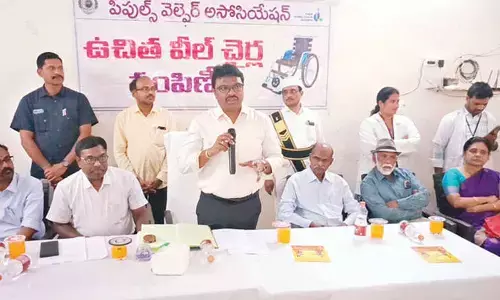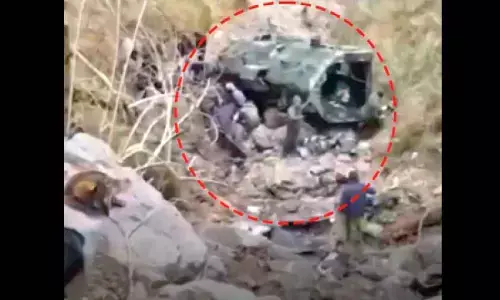Trials on strays: Tread cautiously

The Committee for the Purpose of Control and Supervision of Experiments on Animals (CPCSEA), a statutory body formed by the Act of the Indian Parliament under the Prevention of Cruelty to Animals Act 1960, has recently recommended to the central government that stray dogs may be used for new vaccine trials and challenge studies of vaccines subject to adhering the guidelines of the Committee.
The Committee for the Purpose of Control and Supervision of Experiments on Animals (CPCSEA), a statutory body formed by the Act of the Indian Parliament under the Prevention of Cruelty to Animals Act 1960, has recently recommended to the central government that stray dogs may be used for new vaccine trials and challenge studies of vaccines subject to adhering the guidelines of the Committee. In cases of the batch testing of established vaccines except for challenge studies, dogs coming to the clinics can be used for safety and potency trials. The CPCSEA's decision comes at a time when there is an outcry from animal rights groups across the world to devise an action plan for India to phase out animal experiments in pharmaceutical research. The supporters of animal welfare, euphemistically termed as animal activists, are of the view that most of the drug discoveries are possible without experimentations in animals and inflicting cruelty on them.
Many monkeys, dogs, rats, and other animals are mutilated, burnt, blinded, cut open, poisoned, and drugged in laboratories every year. They argue that not only are these tests cruel, their results are also inapplicable to humans because of the vast physiological differences among species.
Animal rights organisation People for Ethical Treatment of Animals (PETA) India has now urged the CPCSEA to withdraw its recent recommendations for using stray dogs for vaccine testing in favour of superior, human-relevant, animal-free research methods, which are more effective and do not cause suffering to dogs or other animals. It said that the CPCSEA decision would also open floodgates not only for stray dogs, but also other feral animals to be used in experiments. PETA had earlier urged the Indian government to endorse its Research Modernization Deal outlining a road-map for replacing the use of animals in experiments with human-relevant methods. The Deal outlined steps to eliminate the use of animals immediately in areas in which they have already been shown to be poor surrogates for humans and critically review additional areas of research to determine where animal use can be ended.
During the last several years, there have been controversies in the world on the issue of the role of animal experimentation in drug discovery. Millions of animal are routinely used every year in laboratories around the world to test the safety and efficacy of drugs for humans. All conventional drugs are tested on animals at some point as this is required by regulators and in many countries by legislation. It is true that virtually all major medical advances for both humans and animals have been achieved through bio-medical research by using animal models.
So much so that over 50 Nobel Prize winning researchers of the last Century in Medicine and Physiology utilised animals. The heart-lung machine, an important component of open heart surgery, was developed in dogs and pigs, and cardiac pace-makers were developed and tested in dogs. Same is the case with common sutures, clips, staples and grafts which are essential components of surgical interventions. Several life-threatening terminal conditions, such as renal failures, strokes, cardiac infarcts, degenerative musculo-skeletal diseases etc., are being treated through transplants, angioplasty, bypass surgery, orthopaedic implants, insulin pumps and a whole range of transplantable and disposable devices were developed in the first place in animals.
All said and done, there are apprehensions about how practical the decision of the CPCSEA could be, considering that the quality studies are conducted on healthy animals and considering the stray dogs might already infested by various bacteria or virus. In such a scenario, the result from the trials on these animals might not be acceptable to many countries where the regulations are stringent. Besides, using stray dogs for trials would also stand in contradiction to the more progressive policies adopted by several other countries, including Australia, the European Union, the UK, and the US. So, the Indian government should tread cautiously on the recommendation of the CPCSEA to use stray dogs for new vaccine trials and challenge studies of vaccines.
(The author is freelance
journalist with varied
experience in different fields)

















